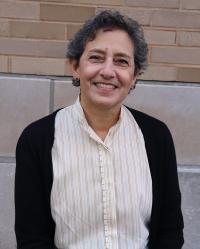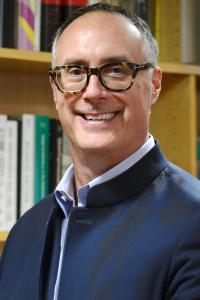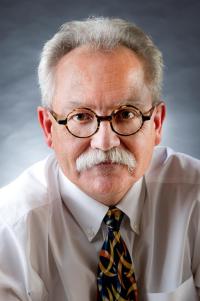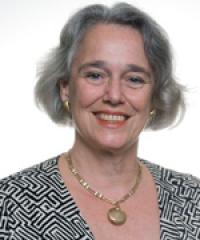
PopFam Celebrates 50 Years of World-Changing Impact
A November 12 event celebrated the 50th anniversary of the Columbia Mailman School Heilbrunn Department of Population and Family Health (PopFam), recognizing the Department’s far-reaching impact at the intersection of public health and human rights.
Founded in 1975 as the Center for Population and Family Health, PopFam is dedicated to advancing equity, championing human rights, and pursuing justice through public health—from the neighborhoods of New York City to communities worldwide. In the time since, the Department has launched the careers of more than 2,000 public health scientists, practitioners, policymakers, and leaders, and pioneered research methods like implementation science and community partnership that are now the gold standard in the field. (Learn more on the PopFam 50th website.)
Capping a year-long schedule of anniversary commemorations, nearly 200 faculty, staff, students, alumni, community partners, funders, and friends participated in the celebration, which also marked the launch of a scholarship fund and a renewed vision for the Department’s future outlined by Department Chair Thoai Ngo. Vice Dean of Education Michael Joseph emceed a rich program that highlighted the many ways PopFam has been influential in research, education, and community partnerships. Brigitte Amiri, deputy director at the ACLU’s Reproductive Freedom Project, was the featured speaker.
Interim Dean Kathleen Sikkema paid tribute to PopFam’s remarkable record of impact, noting that the Department has consistently lived up to its bold ambition to make the world a better place. Highlights include the creation of the Averting Maternal Death and Disability Initiative in 1999, pioneering work in sexual and reproductive health during humanitarian crises, shaping environmental justice in the U.S. and globally, and establishing the Young Men’s Clinic in Washington Heights, a national model for serving migrant youth. “You’ve saved lives and changed systems. The ripple effects are everywhere,” Sikkema said.
All these achievements were “built on the conviction that health, rights, and dignity are inseparable from the health and well-being of people everywhere,” Ngo said, adding that PopFam’s legacy of innovation and impact was enabled by strong partnerships with “communities all over the world who have trusted us with their stories, their experience and struggles, and their solutions.” Ngo acknowledged PopFam leadership through the years, including past chairs Patrick Kachur, Terry McGovern, John Santelli, Leslie Davidson, and Jim McCarthy, most of whom attended the event. Claire Rosenfield, widow of the late dean and founding PopFam chair Allan Rosenfield, was also present.
As part of PopFam Forward 2030, a strategic vision in education, research, and community partnership unveiled by Ngo, the Department will launch a new Master of Science in Population Science, focused on understanding global demographic trends and applying integrated data analytics to real-world challenges. It will be complemented by new executive education programs designed for working professionals seeking to strengthen their leadership and analytical skills in public health.. He opened applications for the PopFam Future Changemaker Scholarship—a chair’s initiative committing $50,000 in scholarships each academic year starting in 2026. Thanks to generous philanthropic support, the fund has already begun to grow.
Principled Partnerships
In a faculty panel, Ngo was joined by Lynn Freedman and Claire Greene, in a discussion that primarily focused on how community input is essential to successful global public health interventions. Greene said Freedman’s pioneering work with communities living in informal settlements in Bangladesh taught her “the importance of principled partnerships and making sure partnerships are central, equitable, and strong.” On the question of how to respond to the hostile policy environment for public health, the three faculty members agreed that they are motivated by the principles of justice and inspired by the communities they serve. “People who live on the margin have to innovate every day out of necessity,” Ngo asserted. “We need to match that energy.”
We’re Going to Get There
A second panel paired alumni Jijo James, MPH’01, Chief Medical Officer for Johnson & Johnson MedTech & Interventional Oncology; Nabeeha Kazi Hutchins, MPH’04, president and CEO of Population Action International (PAI); Carolyn Olson, MPH’04, assistant commissioner at the New York City Department of Health and Mental Hygiene, with PopFam students Aisha Abdool Karim and Amanda Stiffler. Olson spoke to how public health professionals can apply their training to sectors like energy and the environment. James urged students to “get comfortable with being uncomfortable,” and channel their passion into their careers. Hutchins noted that setbacks are a matter of course in the field, adding, “If we stay together, and we stay focused, and we focus on science and evidence and truth, and that we have each other, that we’re going to get there.” Taking the long view, Karim reflected, “PopFam, historically, has paved the way by trying to find new ways to reach people and to make sure programs and services are still being accessed even when there are constraints on the system.”
Science Is on Our Side
At the heart of population and family health lies reproductive rights and access—the foundation of agency, choice, and dignity. Featured speaker Brigitte Amiri addressed the many ways reproductive health is under attack and how she and the ACLU are fighting back in court. Among their notable wins were reversals of abortion bans in Arizona, Ohio, and Missouri. Looking ahead, Amiri foresees legal challenges to restrict access to the abortion drug mifepristone and birth control pills with arguments resting on junk science and testimony from biased “experts.” As one example, some falsely claim that birth control makes women unattractive and less likely to marry, while also affecting the sexual development of young males through the water supply.
“Things are going to get worse before they get better, but it’s incumbent upon all of us to continue to fight, to make sure they do get better,” Amiri said. Hearteningly, she noted, judges have been receptive to arguments based on legitimate science. “When they hear the evidence, we win because we are right and the science is on our side.”





